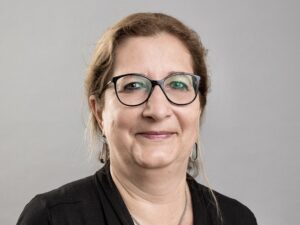Brussels, 28 June 2021
ECSWE applies for Erasmus+ partnership on digital literacy

The project will result in five tangible results: a website, a framework curriculum, school policy guidelines, trainings for teachers and webinars for parents.
On 14th June 2021, ECSWE submitted an Erasmus+ project proposal on media education to the European Education and Culture Executive Agency. HERMMES, the title of the project, stands for “Holistic Education, Resilience and Media Maturity in Educational Settings: Parents, teachers and researchers working towards a development-oriented and age-appropriate approach to ICT and media education”.
The Project Consortium
The project consortium ECSWE gathers 15 partners sharing good practice and developing resources and trainings on media maturity and digital literacy.
Project Summary
One of the greatest challenges of our time is to help children and young people in the development of their media maturity and digital literacy. Technology is evolving every day. Parents and (pre-school) teachers are confronted with the fact that the children and young people in their care are using technology and are moving in virtual worlds that the adults responsible for them can hardly comprehend. However, the question arises HOW they are using it, whether they are able to digest the contents, and whether they are aware of the dangers and pitfalls lurking in the digital world and how to deal with these at different age levels.
In its resolution “Shaping digital education policy“of 25 March 2021, the European Parliament suggests to “introduce digital technologies in a learner-focused, age-appropriate and development-oriented way” insisting that “digital learning strategies need to take into account research on the effects that early use of digital technology may have on the development of young children”.
This strongly resonates with values and beliefs shared among all partners in this project. At the end of their school career, all pupils should be able to use the full range of analogue and digital media properly for their own education, participation in civil society and the labour market, whereas the timing and form of using digital media in education should be closely aligned with the developmental phases of children.Therefore, parents, teachers and researchers have joined their resources, and aim to work towards helping children and young people become resilient and media mature citizens who can make their own informed choices on HOW they use digital technology.
Expected Outputs
If accepted, the project will result in five tangible results: a website, a framework curriculum, school policy guidelines, trainings for teachers and webinars for parents.
For more information, contact the coordinator and author of this project, Márti Domokos on marti.domokos@ecswe.eu.
A question? Please don’t hesitate to contact our project coordinator!




